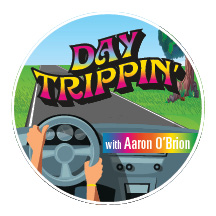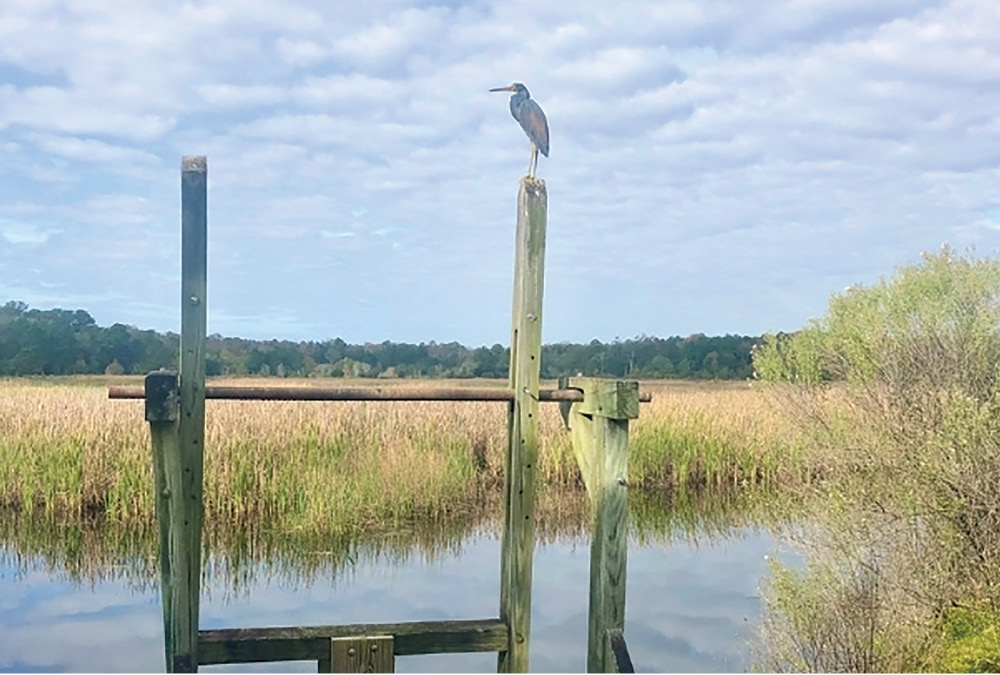Wildlife and history abound just a short drive down Savannah Highway
 In West Of’s newest feature, Aaron O’Brien explores local attractions and scenic outdoor spaces by taking readers to locations within a short drive of West Ashley. From pristine beaches to forest hikes, Day Trippin explores the hidden gems on our own doorstep.
In West Of’s newest feature, Aaron O’Brien explores local attractions and scenic outdoor spaces by taking readers to locations within a short drive of West Ashley. From pristine beaches to forest hikes, Day Trippin explores the hidden gems on our own doorstep.
If you’re anything like me, you’ll occasionally feel the need to hit the reset switch. The past year of political and social upheaval has certainly prompted more resets than usual. For some, this involves binge-watching the latest installment of Fantasy Romance Island Makeover. For others, it may involve losing themselves in a great book, playing video games, or immersion in some artistic pursuit. For me, nothing resets the switch quite as effectively and thoroughly as nature. When life turns into a dumpster fire, you’ll find me camping or hiking in the wild.
In 1980, the universe aligned just right and I was born among the lakes and mountains of a national park in northern England. The Lake District was my home until I left as a college student to pursue an adventure in the New World. Finding myself on the exposed plains of the midwest, I felt bereft of the mountains and valleys that shaped my childhood. The ancient farmhouses and villages I was familiar with were replaced by fluorescent-lit strip malls and truck stops. I felt no connection to the people or land that surrounded me, and I longed to return home.
There were two things that sustained me when I felt most isolated and homesick: the discovery of National Public Radio, which was a connection to a wider world presented in a format that resembled the BBC; and finding a nearby nature preserve.
I felt such solace among the prairie grass and sweetgum trees that the human-built world around me melted away. The soothing rhythm of a slow and steady walking pace instantly calmed and uplifted my spirit. I felt an instant kinship with the earth beneath my feet and each breath of damp forest air that filled my chest. I realized then, that I could find home in any wild or natural place I could wrap myself in.
I have called the South Carolina Lowcountry home for nearly 20 years now, and my favorite place of pilgrimage here is Caw Caw Interpretive Center. A quick 15 minutes down Savannah Highway, Caw Caw is the jewel of the Charleston County Parks. With more than six miles of trails and more than 600 acres of forest and marsh to explore, it’s easy to spend an entire day here without seeing another soul.
Even in the heat of summer, walking into the cool, damp air of the forest feels like being submerged into a cool lake. Wild tea plants, remnants of a short-lived tea plantation here, thrive among the damp, dark underbrush. On some days the bottomland forests are so still and quiet you can hear the leaves hit the ground. On other days the woods are abuzz with activity as birds flit from tree to tree and sing to each other as if auditioning for The Voice.
I often see black snakes and water snakes along the trail. I’ll stop and snap a picture with a mix of fascination and terror, even though I know they’re non-venomous. My skin still prickles every time I see a snake, and for the next half-mile I become hypervigilant, imagining every tree root and stick has fangs. It’s usually with some relief that I emerge from the woods onto the open earthen dykes that separate the tidal marsh from the rice fields.
Here, the warm January sun hits your skin and the views and wildlife are transformed. Alligators are ubiquitous at Caw Caw and are easy to spot along the edges of the canals, bathing in mirror-like water that reflects the cattails and blue sky above. On a recent trip, I heard the monstrous prehistoric growl of an alligator bellow, a sound that wouldn’t seem out of place on the Serengeti — wild and dangerous.
Like many places of outstanding natural beauty in our region, Caw Caw has a dark past. African slaves were brought to this site to work the Laurel Hill Plantation whose rice fields visitors still walk around. Nothing short of an engineering and agricultural marvel, they were rife with hazards such as malaria, snakes, and alligators, not to mention the hazards imposed on them by their human masters. The park’s visitors center makes an earnest and honest attempt to tackle the dichotomy of serene beauty and the grim history that helped create it. At least now we can take comfort that as a county park this land belongs to all of us to enjoy and explore.
On the last section of the trail, looping back towards the visitors center, the landscape changes once again as a boardwalk takes us through a tupelo swamp. A chorus of frogs and insects call from the tea-stained roots of bald cypress and blackgum trees and it feels as if you’ve been transported back into another eon. I half expect to see an informational sign that points out where the pterodactyls lay their eggs. In the summer months, we may choose those over the mosquitos that call this swamp home. They’re large enough to carry you off and seem to have an insatiable appetite and a preference for British blood … remember to pack your bug spray.
Aaron O’Brien is a native of Great Britain. He and his wife Christina make up local duo Oh Valentino. When they’re not performing, you can find them exploring local attractions and outdoor spaces.
Where: 5200 Savannah Hwy., Ravenel
Cost: $2 per person, or free with a Charleston County Parks Gold Pass
Distance from the Coburg Cow: 15.8 miles
Pairs well with: A pint from Fat Pig Brewing Company on the way back








